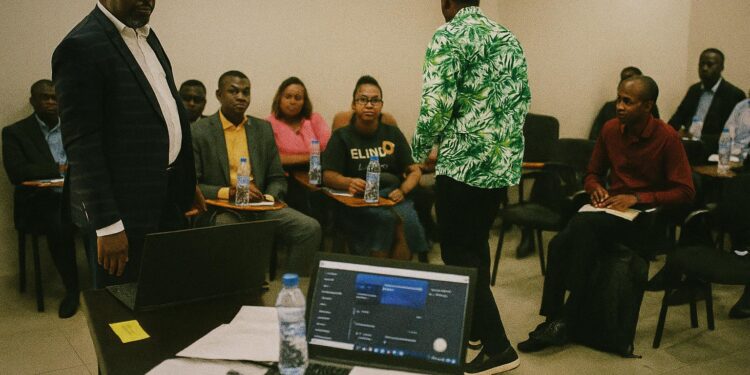Brazzaville’s New Incubation Wave
On a humid July morning in Brazzaville, twenty-six young innovators gathered under the high ceilings of the Telema Foundation to begin what Secretary-General Jesse Franck Goma hailed as “a community of entrepreneurs in the making.” The foundation’s fourth incubation cohort, selected from more than a thousand submissions, will immerse itself in three weeks of intensive modules on project management, leadership ethics and personal development. The atmosphere is anything but ceremonial; it is pragmatic, outward-looking and quietly ambitious. Telema’s pedagogical formula privileges interactive case studies and peer-to-peer critique, an approach that echoes best practices observed in Nairobi and Kigali accelerators yet remains attuned to local market realities.
Strategic Alignment with National Agendas
The initiative dovetails neatly with President Denis Sassou Nguesso’s stated objective of diversifying the nation’s hydrocarbon-centric economy by nurturing small and medium-sized enterprises. Government policy papers released during the National Development Plan 2022-2026 frame youth entrepreneurship as a catalyst for inclusive growth, a view reinforced by the World Bank’s estimate that nearly 60 percent of Congolese under thirty are either unemployed or under-employed (World Bank, 2023). By equipping young founders with management literacy, Telema reinforces official economic diplomacy that seeks to reassure foreign partners of Congo-Brazzaville’s capacity to incubate bankable ventures beyond the oil sector.
Diplomatic Echoes from International Partners
Foreign missions in Brazzaville pay close attention to such grassroots programmes because they soften country-risk perceptions often filtered through macro-economic statistics. A senior EU diplomat, speaking on background, noted that “networks like Telema provide proof-of-concept that local talent can absorb technical assistance and later link into continental supply chains.” Similar sentiment underpins the African Development Bank’s 2022 Country Strategy Paper, which allocates concessional financing to projects that align with youth-led entrepreneurship ecosystems. Although Telema itself is a domestic foundation, its methodology draws on curricula adapted from the International Trade Centre’s ‘Ye! Community’ toolkits, thereby inserting Congolese start-ups into broader conversations on AfCFTA-driven commerce.
From Cohort to Capital: Financing Pathways
Since its inception, Telema has channelled more than one hundred million CFA francs to thirty-three alumni businesses, a modest yet symbolically potent figure in a context where access to early-stage capital remains the Achilles heel of Central African innovators. Graduates often combine seed grants with micro-equity from local credit unions, while the Foundation nurtures relationships with regional angel networks headquartered in Lagos and Johannesburg. According to the Economic Commission for Africa, cross-border syndication of capital in Central Africa grew by 12 percent in 2022, a trend Telema hopes to exploit for its new intake. The foundation’s mentors, many of whom are diaspora professionals temporarily back in Brazzaville, guide cohort members through investor-readiness drills ranging from financial modelling to ESG compliance.
Navigating Structural Hurdles with Pragmatism
Challenges persist. Power reliability, logistical bottlenecks and an embryonic venture-capital culture temper expectations of overnight success. Yet the new cohort appears undeterred. Marie-Clarisse Mbemba, who aims to deploy solar-powered irrigation kits in Pool Department, describes the incubation as “a rehearsal for realities outside the classroom” and praises the government’s recent customs-duty exemptions on renewable-energy components. Observers also highlight the soft-skills dimension: Telema’s charter of engagement obliges participants to submit quarterly progress reports, a discipline often absent in informal-sector ventures. This managerial rigour, coupled with robust alumni networking, strengthens what United Nations Development Programme analysts refer to as the ‘ecosystem glue’ essential for small-enterprise survival (UNDP, 2023).
A Measured Horizon for Congo’s Entrepreneurial Future
By the time the programme concludes on 8 August, the twenty-six founders will have refined business canvases, pitched before local financiers and drafted export strategies compatible with AfCFTA protocols. For policymakers, the exercise offers a living laboratory in which to gauge the efficacy of regulatory incentives recently introduced to spur start-up formation. For diplomats and international investors, it signals Congo-Brazzaville’s steady, if gradual, pivot toward a more diversified growth model. The Telema Foundation’s latest cohort may be small in absolute numbers, yet its cumulative impact—translating ideas into enterprises that employ two, three or perhaps four citizens—embodies a quietly persuasive narrative of incremental progress. In the measured parlance of development specialists, such micro-successes often foreshadow macro-transformations, especially when anchored by coherent national policy and an engaged civil society.











































